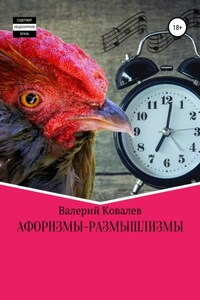Introduction
Guilt is not a bad feeling any more than love is a good feeling.
If we do bad things in response to either feeling, we are likely to be in trouble.
If we do good things in response to either feeling, we are likely to be rewarded.
If we do nothing in response to either feeling, we are likely to become trapped by emotion and depowered.
To some people these statements may seem obvious, but it took me many adult years to be able to say them sincerely. From early childhood I was terrified of guilt. It wasn’t so much the fear of hell fires that caused my terror; it was the fear that I would never become a saint. That had been my burning ambition from as far back as I could remember.
So as a child I seriously strived to be so pure that I would never feel guilt. But however many good conduct badges I earned, I still did. At that time, I belonged to a religion that required me to confess all my sins before receiving Holy Communion. Not only was it expected of me to receive this sacrament, I wanted to do so. I knew it gave you grace and that was what I needed in abundance to become a saint. When the time for confession approached, I would panic. I felt guilty about not having any guilt to confess! My solution was to invent some sins just so I had something to say to the priest. One of those was, of course, lying. I hoped that God would understand.
When in my late teens I stopped believing in God, my guilt problem didn’t disappear. I started to do things that ‘should’ have made me feel guilty but didn’t. So then I was back once again to feeling guilty about not feeling guilty!
Unsurprisingly for a wannabe saint, I drifted into the helping professions. There, I found that I was certainly not alone with my problem. In fact, I was spending a good deal of my working days trying to persuade others not to feel so guilty.
Eventually, I decided that I needed to get a firmer grip on the issue of guilt. I could see that it was causing innumerable kinds of relationship and mental-health problems. I started researching and experimenting with strategies for dealing with this feeling. When I reached a point where I felt confident enough to write a book on the subject, I took the idea to my publisher. A contract for Triumph Over Guilt was signed. That book was never written because my younger daughter was killed in a car accident. Guilt once again became a major personal issue for me.
Over twenty years later I have now written this book. I believe it takes a more kindly approach to the subject than my first synopsis did. I now appreciate more fully the positive aspects of guilt. In contrast, over this period guilt has been categorised by psychologists as a negative emotional state.>1 It appears that many other mental-health professionals are also concerned about the increasing negative impact this feeling is having on people’s mental health. But my aim in writing this book is still the same as it ever was. Above all, I wanted to write an easy-to-read, USEFUL book that could be used as a self-help programme by someone on their own or with a small group of friends.
Is this a book for me?
• Yes, if you are someone struggling with guilt issues in everyday life situations such as:
– losing your concentration because you still feel guilty about the mistake you made last time you tried that same task;
– when faced with a difficult decision, you think, Well, I know I’ll be damned if I do and damned if I don’t;
– obsessively looking over your shoulder to see what others are doing and wondering if you are doing it right;
– when a relationship ends you can’t stop thinking of what you wished you had done that might have made it work;
– when someone has died and you find it hard to move on because you feel guilty about enjoying life when they are not around;
– being a parent who says and does things that you regret and who keeps on thinking that you might have damaged your child or their chances forever;
– feeling so guilty about being happier or richer or more successful than others around that you cannot enjoy what you have;
– feeling constantly bad about not being able to look after someone in the way you think you should;
– dwelling on things you wish you could have done differently in your childhood;














